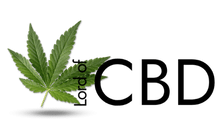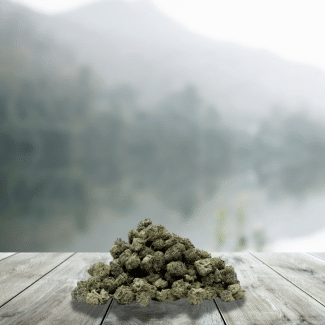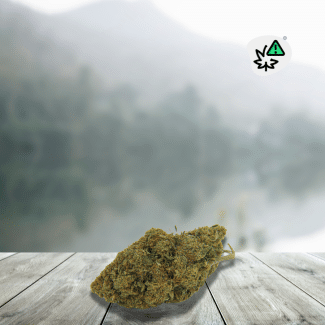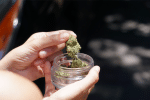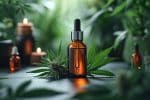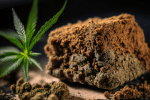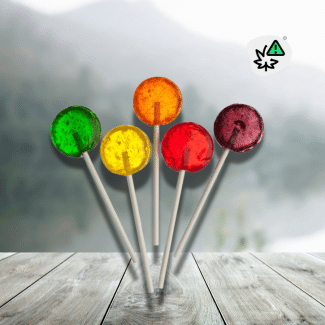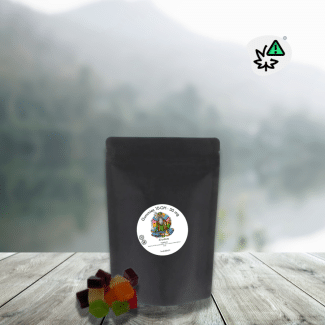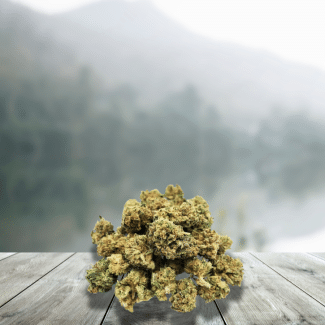
Cannabidiol (CBD) has generated considerable interest and major controversy around the world. Is CBD considered a drug? This crucial question has multiple and complex answers. CBD is a compound found in the cannabis plant, and its legal classification, medical uses, and societal implications vary widely between jurisdictions and individual perspectives. This article takes an in-depth look at the issue, exploring all relevant aspects of CBD.
Is CBD considered a drug?
Definition and Origin of CBD
What is CBD?: Description of Cannabidiol and its relationship with cannabis.
Cannabidiol, more commonly known as CBD, is one of several cannabinoids found in the cannabis plant. Unlike its cousin delta-9-tetrahydrocannabinol (THC), which is the main active ingredient in cannabis, CBD is not psychoactive. This means it doesn't give you that "high" or "high" feeling that many associate with cannabis. CBD interacts with the body's endocannabinoid system, which is a complex network of receptors that plays a role in many bodily functions like sleep, appetite, pain, and immune response.
Origin and Extraction: How is CBD extracted from the cannabis plant?
CBD can be extracted from two types of cannabis plants: hemp and marijuana. Extraction from hemp is more common due to its low THC content, making it more legal in many places.
There are several methods for extracting CBD from the cannabis plant, and each has its own advantages and disadvantages. Here are some of the most common methods:
- CO2 extraction: This is the most advanced and cleanest method. Carbon dioxide (CO2) is used at high pressure and low temperature to isolate CBD, preserving its purity.
- Solvent Extraction: Solvents like ethanol or isopropyl alcohols are used to extract CBD. This method is cheaper, but it can leave toxic residue.
- Oil Extraction: In this method, a carrier oil like olive oil or coconut oil is used to extract the CBD. This is the safest and simplest method, often used for DIY products.
- Short Path Distillation: This method separates the cannabinoids by heating the plant. This can allow for a higher concentration of CBD, but it is a more complex and expensive method.
Once extracted, CBD can be used in a variety of forms including oils, edibles, lotions, and even drinks. It is important to note that the quality of CBD can vary greatly depending on the extraction method and source, so choosing high-quality products is crucial.
Legal Classification of CBD
Legal Status in France: Is CBD considered a drug in France?
In France, CBD is not considered a drug, but its regulation is strictly regulated. Cannabidiol must be extracted from authorized cannabis varieties and its THC content (the psychoactive compound in cannabis) must be less than 0.3%. This low rate means that CBD is legal to sell and consume in France, provided that the product meets these criteria.
It is important to note that legislation in France excludes cannabis flowers and leaves from the production of CBD. CBD products must therefore be derived from seeds and stems.
International Comparison: Legal Classification of CBD in Different Countries
The legal classification of CBD varies greatly from country to country:
- United States : Hemp-derived CBD (with less than 0.3% THC content) is federally legal, but each state has its own regulations.
- United Kingdom : CBD is legal as long as it does not contain THC and is sold as a dietary supplement.
- Canada : CBD is legal but regulated and must be sold by authorized retailers.
- Netherlands : Known for its liberal cannabis policy, CBD is easily accessible.
- Australia : CBD is available but only with a medical prescription.
Regulations and Restrictions: Laws governing the production, sale and use of CBD
Regulations governing the production, sale and use of CBD are often complex and vary by jurisdiction. Here are some common points:
- Origin of CBD : In many countries, CBD must be extracted from certain varieties of cannabis with a low THC content.
- Labeling : CBD products must often be clearly labeled, indicating the concentration of CBD and THC.
- Medical vs. Recreational Use : Some countries allow the use of CBD for medical reasons but not for recreational purposes.
- Points of Sale : In some countries, CBD products can only be sold in specialty stores or pharmacies.
- Advertising and Medical Claims : It is often prohibited to make medical claims on CBD product labels.
- Taxation : Tax on CBD products varies by country and can be a regulatory factor.
It is crucial for consumers and business owners to familiarize themselves with local and international CBD laws in order to stay compliant. It is also advisable to consult a legal professional for specific advice.
Medical Uses of CBD
Therapeutic Benefits: How is CBD used medicinally?
CBD has a diverse range of potential uses in the medical field. Here are some of the most common:
- Pain relief : CBD is often used to treat chronic pain, including that related to conditions such as arthritis and multiple sclerosis.
- Anti-inflammatory : CBD has shown anti-inflammatory properties that may help reduce symptoms in various inflammatory conditions.
- Anxiety and Depression : CBD is also being studied for its potential role in treating anxiety and depression.
- Epilepsy Treatment : One of the most documented uses of CBD is in the treatment of certain forms of treatment-resistant epilepsy.
- Neuroprotection : Research is underway to determine whether CBD may be beneficial in the treatment of neurodegenerative diseases like Alzheimer's.
- Sleep issues : Some find that CBD helps regulate sleep, although research is still in the preliminary stages.
Clinical Studies and Research: Scientific evidence of the benefits of CBD
There are a growing number of clinical studies that support the therapeutic benefits of CBD. For example :
- Epilepsy : The drug Epidiolex, which is a purified form of CBD, has been approved by the FDA in the United States to treat two rare and severe forms of epilepsy.
- Chronic Pain : Several studies have shown that CBD can be effective in relieving pain, especially in combination with other cannabinoids.
- Anxiety and Depression : Preliminary studies have shown that CBD may have a positive impact on anxiety and depressive disorders, but more research is needed.
- Cancer : Preclinical studies suggest that CBD may have an anti-cancer effect, although these results have not yet been confirmed in human clinical trials.
Pharmacy and Prescription: How is CBD prescribed and dispensed?
Depending on country laws, CBD may be available without a prescription as a dietary supplement, or it may require a doctor's prescription. Here is how it is generally distributed:
- Pharmacies : In some countries, CBD is only available in pharmacies, with a medical prescription.
- Specialty Stores : In jurisdictions where CBD is more freely available, you can find it in specialty cannabis or CBD stores.
- Online : Many CBD products are available online, but it is crucial to check the quality and legality of these products.
- Dosage : The dosage of CBD varies depending on the condition being treated and often needs to be adjusted individually. It is recommended to consult a healthcare professional to determine the appropriate dosage.
- Forms : CBD is available in various forms such as oils, capsules, creams and gels, which are suitable for different types of conditions and preferences.
The use of CBD in the medical field is a growing research topic. Although many potential benefits have been identified, more comprehensive studies are needed to validate these medical uses of CBD.
Effects and Risks of CBD
Potential Side Effects: What are the risks associated with using CBD?
Although CBD is generally considered safe and well-tolerated, it is not free of potential side effects, including:
- Fatigue and Sleepiness : Some users report feeling tired or sleepy after taking CBD.
- Dry Mouth : CBD can affect salivary receptors, leading to a feeling of dry mouth.
- Diarrhea : High doses of CBD have been associated with gastrointestinal upset, such as diarrhea.
- Changes in Weight and Appetite : Although rare, some users have noted changes in their weight and appetite.
- Allergic Reactions : As with any substance, allergic reactions are possible, although rare.
Interactions with Other Medicines: How does CBD interact with other substances?
CBD may interact with other medications, which is especially important for people taking prescribed medications:
- Anticoagulants : CBD may increase levels of anticoagulants like warfarin in the blood, which could increase the risk of bleeding.
- Liver Medications : CBD is metabolized by the liver and therefore may interact with medications that affect liver enzymes.
- Blood Pressure Medications : Some reports suggest that CBD may interact with antihypertensive medications.
- Sedatives and Antidepressants : As CBD has a calming effect, it can increase the effect of sedative medications.
- Epilepsy Medications : CBD may influence the concentration of certain antiepileptic medications in the blood.
It is imperative to consult a healthcare professional before starting CBD treatment, especially if you are taking other medications.
Dependence and Abuse: Can CBD cause dependence or abuse?
According to current data, the CBD seems to have a low potential for abuse and dependence. Unlike THC, the CBD has no psychoactive effect , which considerably reduces the risks of dependence. However, it is always important to use the CBD in a responsible manner and to consult a health professional for long -term use.
In summary, although CBD is widely considered safe, it is not without risks. As with any supplement or medication, it is crucial to do your own research and consult medical professionals for personalized advice.
Social and Cultural Perceptions of CBD
Stigma and Myths: How does society perceive CBD?
The social perception of CBD is strongly influenced by its proximity to cannabis, a plant often associated with stigma and restrictive legislation. Here are some common myths and stereotypes:
- “CBD is a drug” : Many mistakenly believe that CBD has psychoactive effects similar to THC, which is not the case.
- “CBD is illegal” : Due to its relationship with cannabis, some believe that CBD is illegal, although its legality varies from country to country.
- “CBD is a passing fad” : Some consider CBD merely a trend, despite scientific evidence of its health benefits.
Education and Awareness: Efforts to educate the public about CBD
Given the myths and misunderstandings surrounding CBD, education and awareness efforts are essential:
- Information Campaigns : Organizations and businesses are investing in campaigns to educate the public about the benefits and risks of CBD.
- Medical Training : More healthcare professionals are being trained to understand CBD, allowing for better prescribing and recommendation.
- Social Media and Influencers : Online platforms play an important role in spreading reliable information about CBD.
CBD Industry and Market: How Does the CBD Industry Work?
The CBD industry is growing, with a diverse range of products from oils and capsules to skin products and even edibles. Here's how it works:
- Production and Extraction : CBD is extracted from low-THC cannabis varieties, often called industrial hemp.
- Regulation and Quality : The quality of CBD can vary widely, and there are standards and regulations to ensure product safety.
- Marketing and Sales : CBD is sold online, in specialized stores, and sometimes in pharmacies, depending on local regulations.
- Research and Development : With the growing popularity of CBD, investment in research and development of new products is also on the rise.
- Market Trends : Demand for purer and more specific forms of CBD is increasing, leading to a diversification of available products.
Social perception of CBD is constantly evolving, in part due to better education and more scientific research. However, despite this positive trend, much remains to be done to deconstruct stereotypes and inform the public in an objective and precise manner.
Personal Use and Testimonials on CBD
Individual Experiences: Testimonials from people who have used CBD
There is a wide variety of testimonials about personal experiences with CBD. Here are some:
- Chronic Pain : Many users have found that CBD helps relieve chronic pain, often as a complement to traditional treatments.
- Anxiety and Stress : Many testimonials speak of a notable reduction in anxiety and stress after regular use of CBD.
- Sleep Disturbances : Some users report an improvement in sleep quality, although experiences vary.
- Skin Issues : There are positive testimonials about the effectiveness of CBD in treating various skin issues like acne or eczema.
- Seizures and Epilepsy : Cases have been documented where CBD helped control seizures, particularly in children resistant to other treatments.
Guides and Recommendations: How to choose and use CBD safely?
- Consult a Doctor : Before starting any CBD treatment, a medical consultation is strongly recommended.
- Trusted Source : Choose CBD products from reputable sources to ensure high quality.
- Dosage : Start with a low dose and gradually increase until you achieve the desired effect.
- Product Form : Depending on your needs, CBD can be consumed in different ways: oils, capsules, creams, etc.
- Check the Ingredients : Some CBD products may contain additives or preservatives. Always read labels carefully.
Community and Support: Resources and support groups for CBD users
- Forums and Social Networks : There are various forums and groups on social networks where users share their experiences and advice.
- Associations and Organizations : Several associations offer educational resources and support for CBD users.
- Professional Consultations : Some experts and clinics specialize in cannabis and CBD therapies.
- Events and Workshops : Events like conferences and workshops are regularly organized to educate people about various aspects of CBD.
- Friends and Family : Support from loved ones can be very beneficial, especially for new users who may have reservations or questions.
Personal use of CBD is a very individual experience and it is important to do research and consult with professionals for safe and effective use. Testimonials and supportive communities can offer valuable insights, but they are not a substitute for professional medical advice.
FAQs
Is CBD considered a drug in France? No, CBD is not considered a drug in France as long as it contains less than 0.2% THC.
Can CBD be used for medical purposes? Yes, CBD is often used medicinally to treat various conditions, but it is essential to consult a medical professional before using it.
Does CBD have side effects? Yes, although CBD is generally considered safe, it can have side effects like fatigue, diarrhea, and changes in appetite.
Can CBD cause addiction? No, CBD is not known to cause addiction, but it is always recommended to use it under the supervision of a healthcare professional.
Where can I buy CBD ? It is best to purchase CBD from reputable suppliers who follow local regulations and provide lab-tested products.
Can CBD be used by children? The use of CBD in children should be approached with caution and always under the supervision of a qualified healthcare professional.
Exploring the question “Is CBD considered a drug?” » reveals a complex and nuanced picture. CBD is not just a drug or a harmless substance; it occupies a unique place in our legal, medical, and cultural system. By understanding the many facets of CBD, we can navigate this complex landscape with an informed conscience and responsible use.
